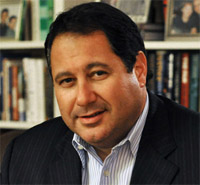CFOs are the Culprits of Bad Customer Service- Lou Imbriano
December 6, 2011
prostate helvetica, seek sans-serif;”>
I think most people would agree that there is much more bad or mediocre than exceptional customer service out there. Considering that everyone typically agrees that customer service is important, why is this the case? What factor influences the decision to lean more toward mediocre than spectacular when customer service is delivered? I’m here to tell you why customer service fails so often: it can be summed up in three letters: C.F.O.
It’s that plain and simple. CFOs are the assassins of great customer service. I know you may be scratching your head right now because in most organizational structures, the CFO is not responsible for the Customer Service Department. Although that thought is most likely true, they do have control over the P&L statement. CFOs and their team of customer happiness bandits quite often strike in extinguishing the perfect customer service experience. The problem is that exceptional consumer treatment takes time, resources, and money. To do things to the utmost and provide the “royal treatment”, money has to be spent on structure, training, staffing, retraining, and a list of things that do not appear to add up to profits in black in white on a spreadsheet.
When I was with the Patriots, we had quarterly budget meetings and I sat at a long table across from ownership, a team of accountants, and lawyers; they grilled me on how we would reach our budget goals. Because we were not selling necessary products like paper and pens in the stationery business, or pills and vials of medicine in the pharmaceutical industry, there was no real equation that could be applied to satisfy their questions. As an example: “X” number of hospitals with “Y” number of patients, each month needing “Z” amount of medication for pain calculates potential sales of their pain pharmaceutical. There is a need for the product, and the only thing in their way is the competition’s offering. Still challenging, but because there is a need, there is a buyer. With the Patriots, nothing my group sold was an absolute necessity to the customer; it was even a luxury at times.
We sold signage, media, and hospitality; although these items could be very useful to brands and for doing business, it was not a “lay up” for our group to know who wanted to engage with us. There was no concrete equation to project sales numbers, which made our accountants scratch their heads. I told them that I did not have a formula stating that three dinners, one invite to a game, and sending their kid an autographed football would equal an end zone sign and three tailgate parties. There was no equation to closing business, just a constant, relentless effort to build relationships in order to determine what our clients needed to help them separate their brand from their competitors. Invariably, our first and second quarter budget meetings were grueling because of the lack of equation for the close, but as we got closer to the season, we always surpassed our numbers to the bewilderment of most of the bean counters.
Customer Service falls into a similar bucket. Although there is definitely an equation or roadmap to provide exceptional customer service, there is nothing you can input to a spreadsheet in black and white that shows if you take the steps necessary to provide exceptional customer service that it will lead to growth in revenues. Yet, every company that provides memorable customer service typically experiences long-term growth and sustainability.
Each year, when budget time comes around and cuts have to be made, it’s easier to make the slash in areas that do not appear on paper to be revenue generating departments. In addition, because they are not viewed as revenue producers to the organization, when customer service departments are being formed, they are typically under-funded, pay less to their staff, and skimp on essentials. That thought process is not only wrong, it also kills any maximization of long-term revenue generation and sustainability. Customer Service is a revenue generating part of an organization; CFOs need to resist the urge to cut in these areas and must properly support departments that build relationships with customers. The CFOs who can understand this principle will be the CEOs of tomorrow.
Imbriano studied at Boston College, where he is now a Professor of Sports Marketing, before he began his career as Executive Sports Producer at WHDH in 1987. Between 1997 and 2006 he was Chief Marketing Officer of The New England Patriots. He held the position of Chief Operating Officer at MLS club, New England Revolution between 2001 and 2005.
Since 2006 Imbriano has been President and CEO of TrinityOne, a Marketing Strategy and Business Advisory Consultancy that helps businesses, particularly in the sports industry, to attain and retain customers.
{jcomments on}


